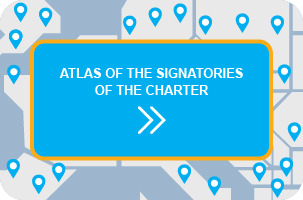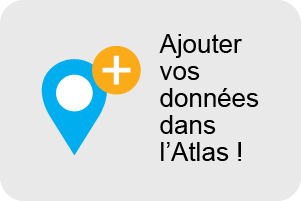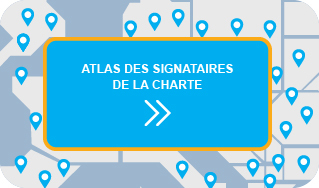Euro Mediterranean Charter for Equality launched in Madrid
The Euro Mediterranean Charter for Equality of Women and Men in Local Life (or EuroMed Charter) was formally launched in Madrid (Spain) on 21-22 November 2016. This is the fruit of a 42-month-long cooperation between local governments and civil society organisations working on gender equality in the Southern neighbourhood.
The conference was hosted by PLATFORMA partner the Spanish Federation of Municipalities and Provinces (FEMP). Mireia Espiau, Equality expert from the Association of Basque Municipalities, spoke on behalf of the president of CEMR’s Standing Committee for Equality, Ibon Uribe, who was invited to share the experiences of the European Charter for Equality. She congratulated the Standing Conference of Local Authorities of the Mediterranean (COPPEM) and the project partners on the initiative and encouraged the first signatories in their new commitment.
The preparation of the EuroMed Charter, led by COPPEM and supported by the European Union, took place through local roundtable exchanges. Partners from the Mediterranean basin, ranging from Spain to Tunisia, participated in the project and contributed to drafting the Charter text. Local and regional authorities and civil society organisations exchanged more than 80 good practices over the course of the roundtable meetings. The good practices have been collected and will be available via an interactive database for sharing good practices that promote equality, called “wikipractice”.
The Euro Mediterranean Charter, inspired by the European Charter for Equality, builds on the basic principles of equality of women and men in local life and presents concrete ways for local authorities to advance equality in their territories. “There is a strong symbolic bond between the two Charters and this is a moment to relaunch the momentum of the original initiative and its underlying principles…the Charters challenge a common enemy: discrimination,” underlined Adly Hussein, the First Vice-President of COPPEM.
Why a Euro Mediterranean Charter?
A panel of project participants discussed why a Charter for Equality in Local Life was needed for the Euro-Mediterranean Region.
The new text addresses some issues of specific urgency in the Southern Neighbourhood such as early and forced marriages and so-called “honour killings”. While women across the globe face discrimination and challenges in accessing services on an equal basis as men, such as education and healthcare, many of the countries participating in the project are undergoing a challenging period of transition that has a particular impact on women. For example, in Egypt, 37.3% of women are illiterate and “at least 2 million women (out of a total population of 82 million) do not have personal identification documents”[1] which impacts their ability to work, vote or even have a personal bank account.
David Lucas Parrón, President of FEMP’s Commission for International Relations, reminded that gender equality is a priority on the Spanish association’s agenda and it will undertake positive actions to promote and implement both equality Charters. The Secretary General of FEMP, Juan Ávila Francés, emphasised the obligation of local governments in Europe and in the Mediterranean zone to cooperate with each other in development of municipalities for the benefit of citizens. FEMP supports this work and wants to lead by example, particularly though its membership in PLATFORMA, the European voice of local and regional authorities for development.
In the words of the Coordinators
The expert coordinators from each participating country recounted their experiences and what was gained through the international exchanges. Lablou Cacimi, speaking on behalf of Saida Brahim Bounab, the expert coordinator from Algeria, credited the experience with making local governments more aware about gender equality and women’s rights, and what actions they can take to make a difference.
José Antonio Vázquez Barneto, Mayor of Salvatierra de los Barros (Badajoz) and member of the Commission for International Relations of FEMP saw the international cooperation of the project as a way of building dialogue and understanding, and consequently—a better world. The local coordinator for Palestine, Yasser Hemadan, elaborated on this point, highlighting that “Spanish and Italian feminism cannot be the same as Algerian or Maltese feminism. We are in a gradual process of respectful exchange.” He also brought up a common challenge that is faced when implementing measures outlined in an equality charter: financial means. Adequate, dedicated financial means are absolutely necessary for the success of these initiatives, especially in the Palestinian territories.
Even if there were disagreements on the meaning and scope of certain words in the text during the preparatory meetings, Chiara Cruciati, expert coordinator for Palestine, highlighted the positive outcome of the final document: “This is a grassroots, bottom-up Charter resulting from debate with international partners to pressure higher levels of government to put the principles enshrined within it into practice. The Charter is not an end in and of itself; it is a weapon for fighting in the just cause of equality. We are not going to stop here and forget about it. We have to take action and give it real, tangible content—article by article.”
Good practices
Finally, several good practices identified in the course of the project were presented by a panel of local elected officials. Ana María Besalduch, Mayor of Sant Mateu (Castellón, Spain) and member of FEMP’s Commission for International relations, shared the measures that Sant Mateu has undertaken to achieve gender equality, such as offering affordable training courses to improve CVs (90% of training participants are women), providing care services through elderly homes, outpatient clinics, and day cares so that women can continue their education and/or work, and positive discrimination in public bidding, that is, companies with equality action plans are more likely to be awarded tenders.
In Palermo (Italy) the working hours in the public sector are organised to balance professional and social life (i.e. no late evening meetings, etc.).
Next steps
COPPEM and the project partners will continue to exchange and share their experience. They are currently directing their efforts toward the dissemination and implementation of the new Charter.
LINKS
@MedEquality on Twitter and on Facebook
*“Promotion of Policies for Equality in the Euro-med Region” (ENPI/2013/311-826)
[1] http://en.international-advice.org/non-class%C3%A9-en/a-charter-for-women-of-the-mediterranean.html















